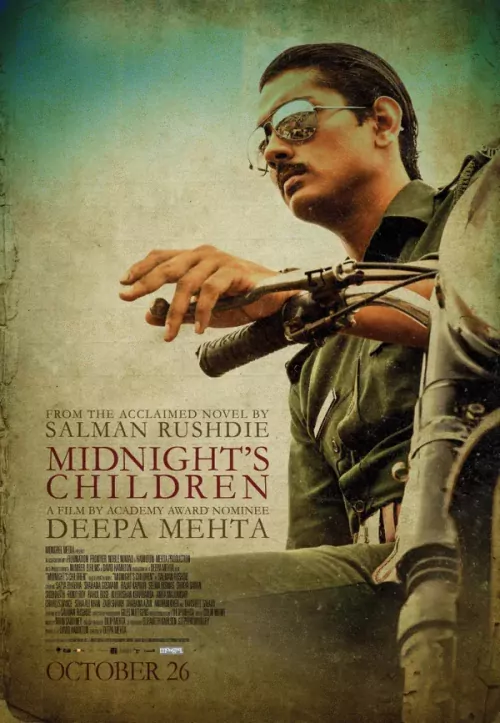
"Midnight's Children" by Salman Rushdie is a masterpiece of postcolonial literature that explores the complexities of identity, history, and memory. The book tells the story of Saleem Sinai, a boy born at the stroke of midnight on India's independence day in 1947, whose life becomes entwined with the history of his country.
Salman Rushdie is one of the most celebrated authors of the 20th century, known for his intricate and highly imaginative novels that explore themes of identity, cultural conflict, and political upheaval. Born in Bombay, India in 1947, Rushdie has lived a life marked by controversy and acclaim, having won numerous awards for his writing while also facing death threats and public condemnation for his work.
Rushdie's most famous novel, "Midnight's Children," was published in 1981 and won the Booker Prize the following year. The book tells the story of Saleem Sinai, a boy born at the moment of India's independence, whose life becomes intertwined with the larger history of his country. The novel is renowned for its use of magical realism and its exploration of the complexities of Indian identity.
However, it was Rushdie's fourth novel, "The Satanic Verses," that brought him international attention and controversy. Published in 1988, the novel sparked protests from conservative Muslim groups who deemed it blasphemous and called for Rushdie's death. In 1989, Ayatollah Khomeini, the leader of Iran, issued a fatwa calling for Rushdie's assassination, leading to years of hiding and increased security measures for the author.
Despite the threats, Rushdie continued to write and publish, including the novel "The Moor's Last Sigh" and the memoir "Joseph Anton," which chronicles his life under the fatwa. He has been awarded numerous honors, including a knighthood from Queen Elizabeth II in 2007.
Rushdie's writing is known for its complexity and experimentation with form and style, often blending elements of magical realism, satire, and social commentary. His work is deeply influenced by his experiences as an immigrant and a person of mixed cultural heritage, and explores themes of displacement, cultural conflict, and the search for identity.
In addition to his writing, Rushdie is also a prominent public figure and advocate for free speech and human rights. He has spoken out against censorship and government repression in various countries and has been a vocal critic of religious extremism and fundamentalism.
The novel begins with Saleem's grandfather, a doctor who inadvertently switches two newborn babies in a moment of distraction. Saleem is thus born into a wealthy Muslim family, but with a Hindu identity. This event sets the stage for the novel's exploration of identity and the ways in which it can be shaped by historical events and chance occurrences.
As Saleem grows up, he discovers that he has a telepathic connection to other children born at the same moment as him, who also possess unique abilities. Together, they form a network of "midnight's children" who are linked by their shared birth and their connection to India's tumultuous history.
The novel's narrative is richly layered, moving back and forth between Saleem's personal story and the larger historical events that shape his life. Rushdie uses magical realism to great effect, blending elements of fantasy and myth with the harsh realities of India's past. The novel is both a deeply personal story and a sweeping epic that spans decades of Indian history.
At its core, "Midnight's Children" is a meditation on the power of memory and the ways in which history shapes our understanding of the world. Saleem's story is a testament to the resilience of the human spirit and the ways in which individuals can transcend their circumstances to create a meaningful life.
In conclusion, "Midnight's Children" is a truly remarkable novel that deserves its place as a classic of modern literature. Rushdie's prose is lyrical and evocative, capturing the richness and complexity of India's history and culture. This is a book that rewards careful reading and reflection, and its themes will stay with readers long after they have turned the final page.








